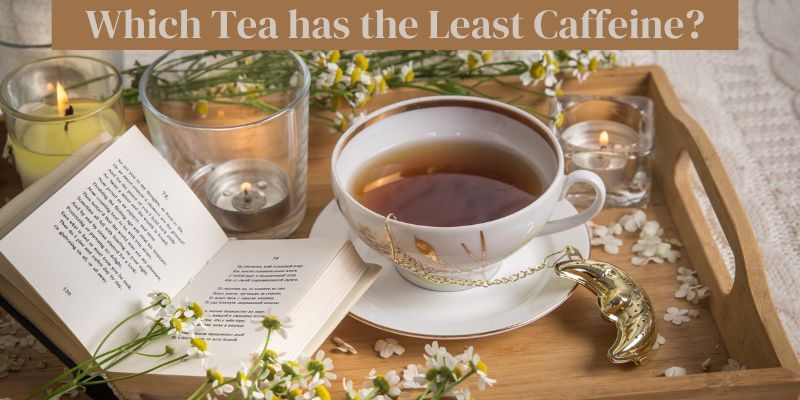Tea is a popular beverage enjoyed by millions of people worldwide, and it is known for its numerous health benefits. However, some people prefer to limit their caffeine intake for various reasons, such as sensitivity to caffeine, insomnia, anxiety, or other health conditions. Fortunately, there are several types of tea that have low or minimal caffeine content, making them a suitable option for those who want to enjoy the taste and health benefits of tea without the stimulating effects of caffeine.
Read:- Jameson Green Tea Shot Recipe
What is Caffeine?
Caffeine is a natural stimulant found in various plants, including coffee beans, tea leaves, cocoa beans, and kola nuts. It belongs to a group of compounds called xanthines, which act as central nervous system stimulants. Caffeine works by blocking the action of adenosine, a neurotransmitter that promotes sleep and suppresses arousal.
When caffeine binds to adenosine receptors, it increases the activity of other neurotransmitters, such as dopamine, norepinephrine, and acetylcholine, which can improve alertness, attention, mood, and cognitive performance. Caffeine is commonly consumed in beverages such as coffee, tea, energy drinks, and soda, but it can also be found in some foods, medications, and supplements.
The effects of caffeine can vary depending on the dose, individual sensitivity, and other factors such as age, gender, and health status. While moderate caffeine consumption is generally safe for most people, excessive intake can cause side effects such as anxiety, insomnia, restlessness, palpitations, headaches, and gastrointestinal issues.
Why do teas have different amounts of caffeine?
Teas can have different amounts of caffeine due to various factors, such as the type of tea plant, the part of the plant used, the growing conditions, the processing method, and the brewing time and temperature.
The tea plant, Camellia sinensis, contains caffeine naturally, and the amount of caffeine in tea depends on the variety of the plant, the region where it was grown, and the time of harvest. For example, some varieties of Camellia sinensis, such as Assam and Yunnan, tend to have higher caffeine levels than others, such as Darjeeling and Keemun.
The part of the tea plant used can also affect caffeine content. Tea leaves contain more caffeine than stems or twigs, so teas made from leaves, such as black tea and green tea, tend to have higher caffeine levels than teas made from stems, such as kukicha or bancha.
The growing conditions, such as altitude, soil, and climate, can also influence the caffeine content of tea. For instance, tea plants grown at higher altitudes tend to have higher caffeine content than those grown at lower elevations.
The processing method can also affect the caffeine content of tea. Black tea, which is fermented and oxidized, has more caffeine than green tea, which is steamed or pan-fired and not oxidized. Oolong tea, which is semi-fermented, has intermediate caffeine levels.
Finally, the brewing time and temperature can affect the amount of caffeine that ends up in the cup. Steeping tea for a longer time or using hotter water can extract more caffeine from the leaves, whereas shorter steeping times or cooler water can reduce caffeine levels.
Read:- Tea Bags for the Eyes
The list of Tea has the Least Caffeine
Here are some types of tea that have the least caffeine content:
1. Herbal Tea
Herbal tea is made from herbs, fruits, or flowers, and does not contain any tea leaves from the Camellia sinensis plant. Therefore, herbal tea is naturally caffeine-free, making it an excellent choice for those who want to avoid caffeine altogether. Some popular herbal teas include chamomile, peppermint, ginger, and rooibos.
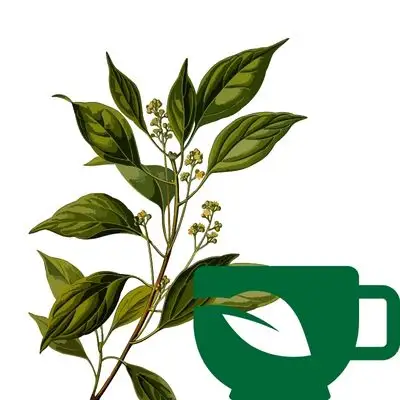
2. White Tea
White tea is made from the young leaves and buds of the tea plant and is known for its delicate flavor and low caffeine content. White tea is minimally processed, which means it retains more of its natural antioxidants and nutrients. On average, a cup of white tea contains around 15 mg of caffeine, which is significantly less than black tea or coffee.
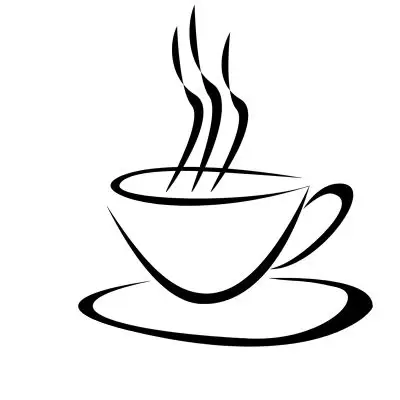
3. Green Tea
Green tea is made from the same tea plant as black tea, but it undergoes less processing, which means it retains more of its natural antioxidants and nutrients. Green tea contains less caffeine than black tea, with an average of 25 mg of caffeine per cup. Some green tea varieties, such as Japanese green tea, contain even less caffeine.
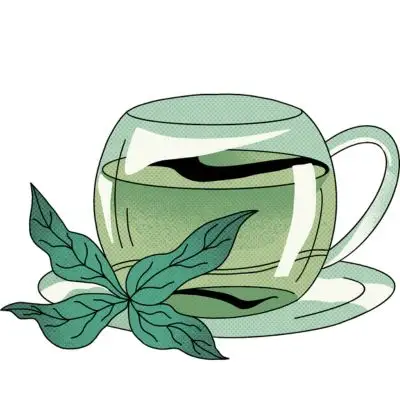
4. Oolong Tea
Oolong tea is a semi-fermented tea that is between green and black tea in terms of processing. It has a unique flavor and aroma and contains less caffeine than black tea, with an average of 37 mg of caffeine per cup.
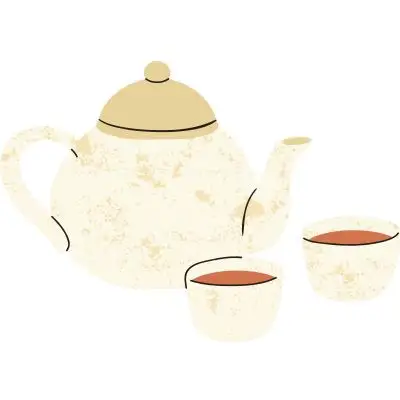
5. Decaffeinated Tea
Decaffeinated tea is a type of tea that has undergone a process to remove most of its caffeine content. Decaf tea is made from regular tea leaves, but the caffeine is removed using various methods, such as the Swiss Water process or the CO2 method. Decaf tea can still contain trace amounts of caffeine, but generally, it contains less than 5 mg of caffeine per cup.
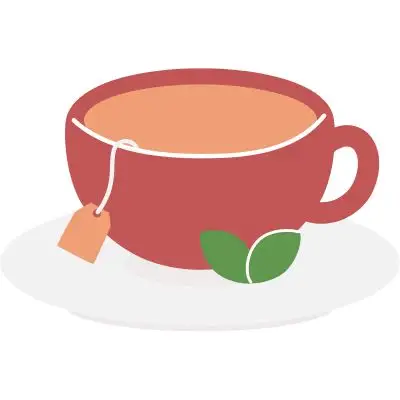
6. Rooibos Tea
Rooibos tea, also known as red tea, is an herbal tea that is made from the dried leaves of the rooibos plant, which is native to South Africa. Rooibos tea has a sweet, nutty, and slightly earthy flavor with a reddish-brown color. It is naturally caffeine-free and is a good source of antioxidants, which help to reduce inflammation in the body and boost the immune system. Rooibos tea is also low in tannins, which makes it less bitter than some other tea varieties.
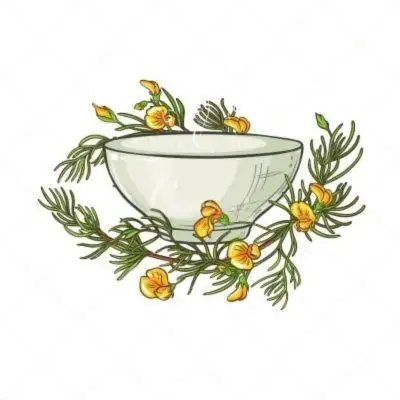
7. Honeybush Tea
Honeybush tea is another herbal tea that is native to South Africa. It is made from the dried leaves and flowers of the honeybush plant, which has a sweet and fruity flavor. Honeybush tea is naturally caffeine-free and is rich in antioxidants, which help to protect the body from free radical damage. It is also low in tannins, which makes it less bitter than some other tea varieties.
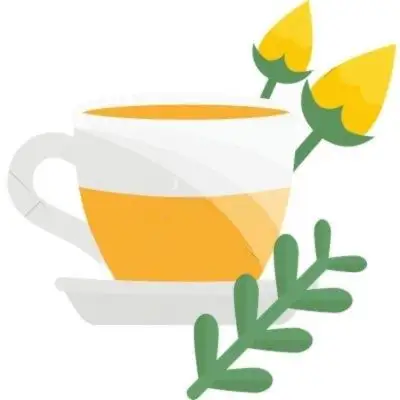
8. Peppermint Tea
Peppermint tea is an herbal tea that is made from the leaves of the peppermint plant. It has a refreshing and minty flavor with a bright green color. Peppermint tea is naturally caffeine-free and is known for its digestive and soothing properties. It can help to relieve stomach cramps, bloating, and nausea.
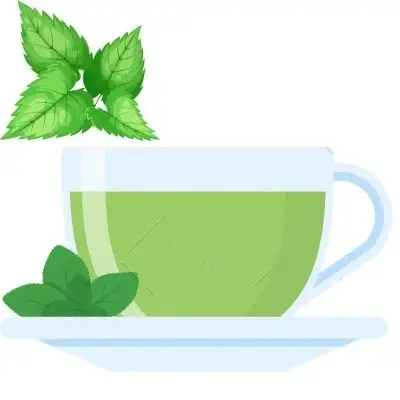
9. Lemon Balm Tea
Lemon balm tea is an herbal tea that is made from the leaves of the lemon balm plant. It has a lemony flavor with a light green color. Lemon balm tea is naturally caffeine-free and is known for its calming and relaxing properties. It can help to reduce stress and anxiety and promote restful sleep.
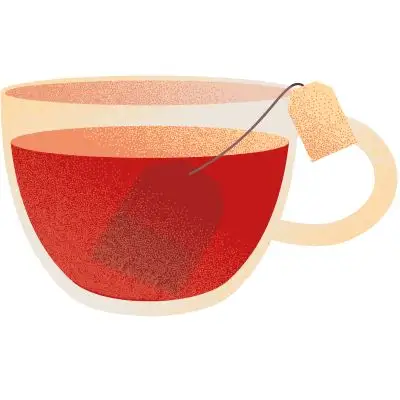
10. Chamomile Tea
Chamomile tea is an herbal tea that is made from the dried flowers of the chamomile plant. It has a sweet and floral flavor with a yellow color. Chamomile tea is naturally caffeine-free and is known for its relaxing and soothing properties. It can help to promote restful sleep, reduce anxiety and depression, and relieve digestive issues such as bloating and indigestion.
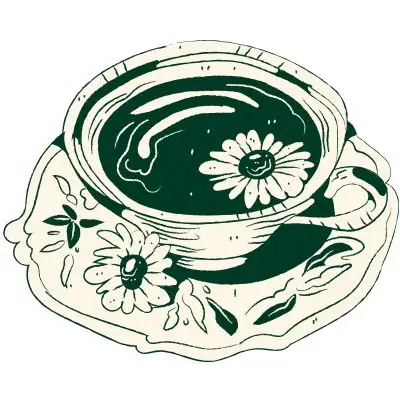
Conclusion
In conclusion, there are several types of tea that have low or minimal caffeine content, making them a suitable option for those who want to limit their caffeine intake. Herbal tea, white tea, green tea, oolong tea, and decaf tea are all great choices for a caffeine-free or low-caffeine beverage that still offers the taste and health benefits of tea.
You might also like
